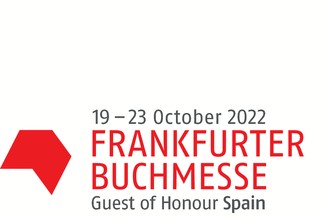What you need to know from Frankfurt Book Fair

This year’s Frankfurt Book Fair returned to an in-person experience for the first time since the pandemic took the world online. The atmosphere was charged with excitement and possibility as business transformed from virtual to face-to-face. It was a wonderful event - one which the whole Research Information team thoroughly enjoyed.
You probably have read the pre-event take on relevant themes. So further to that, here is Research Information’s analysis of additional key scholarly themes and takeaways.
#1 The article-based economy
What is the article-based economy? Simply put, it's the open science, open data and open research, where there isn't such a substantial gap between the various stakeholders. The panel for this discussion included the following experts in academic publishing:
- Olaf Ernst (Oable, Chief Solutions Officer)
- Liz Ferguson (Wiley, Senior Vice President, Research Publishing)
- Sven Fund (Knowledge Unlatched, Senior Director)
- Philipp Hess (ResearchGate, Head of Publisher Relations)
- Tobias Kuhn (Vrije Universiteit Amsterdam, Assistant Professor)
- Dr Irina Sens (TIB - Leibniz Information Center for Science and Technology, Head of Library Operations)
In this open model, dissemination of information happens at an article level, where researchers are publishing individual pieces of research, which then creates an opportunity for publishers to align with trending topics rather than pitching whole journals to libraries. This essentially involves new models and new technology, but more importantly, increased collaboration. Publishers and libraries need to start talking again, and solve problems together – especially with regards to open data, science and research.
We are currently in the middle of this open access transformation, so there will be a lot of activity to be seen in this area, such as making articles machine-readable. Researchers weren't going to naturally make the transition to new models over the tried-and-tested methods. In fact, Wiley have done lots of work around this with different stakeholders by aligning with those that are wanting to change but looking for the path. And it’s not just a financial transaction with funders or institutions etc. – authors can now benefit from open access too.
#2 Measuring impact
It was interesting to hear about the exciting updates from Clarivate and the accelerated need for analytics to drive research workflows and engagement. This was seen in how the pandemic created a need for open access to research in academic library sector. Following the introduction of the field-normalised JCI last year, Clarivate are extending the Journal Impact Factor to the entire Web of Science Core Collection and it will only appear to one decimal place. We heard from the following speakers:
- Julie Carroll-Davis (Clarivate, Senior Vice President of Global Content)
- Dr Nandita Quaderi (Clarivate , Editor-in-Chief & Editorial VP of the Web of Science)
- Ellie Souster (Taylor & Francis, Head of Transformative Agreements)
Trends
- Accelerated need for analytics to drive research workflows and engagement
- The pandemic created a need for open access to research in the academic library sector
- Having a clearer idea of the pipeline for 2023 was a priority for many of the publishers and other stakeholders in the publishing industry, owing to the after-effects of the pandemic
Challenges
- Library budget uncertainty
- New funder mandates
- Adapting to change and solutions
- Working methods such as hybrid, remote etc. gaining popularity
Taylor & Francis’ range of publishing options help researchers to choose open access, increasing the reach and impact of knowledge. They partner with institutions worldwide to help researchers publish open access in their chosen journals at minimal cost, which opens up research across a diverse range of subject areas. These are the key findings that were shared on the impact of research made open through global transformative agreements. They doing interesting work in their transformative agreement portfolio and report growth in their open access articles citations and altmetric-tracked citations.
#3 Issues and outlook for the publishing industry
There was a special roundtable talk from the directors of book fairs from across the world. We heard from the following leaders in publishing:
- Eva Orue, Director of the Madrid Book Fair
- Rex How, Chairman of the Taipei International Book Exhibition
- Mamadou Aliou Sow, Director of Conakry International Children's Book Fair
- Yoel Makov, Director of the Jerusalem International Book Forum
- Porter Anderson, Editor-in-Chief, Publishing Perspectives (moderator)
The overall message was a call to focus on the demand from the existing market, especially post-pandemic, rather than expanding right away. While this was a message to the overall publishing industry, the following issues and prospects still apply to the scholarly community.
Current obstacles
1. Pricing models
2. Funding the re-establishment of book fairs
3. Cooperation across the global communities involved in book publishing and book fairs
Future perspectives
1. Intensification of the market - more people creating and consuming published work
2. Greater presence and power of African and Asian publishers
3. Less separation of professional and public aspects of book fairs around the world: bringing professional work and cultural significance together
To conclude, there is most certainly a feeling of promise for this significant, global industry. There have been challenges in the past few years but there are even more opportunities for organisations, academics and librarians in the very near future. Look out for a plethora of launches, updates and proposals from many stakeholders related to the scholarly community on the Research Information news page.
Annabel Ola - Editor, Research Information






